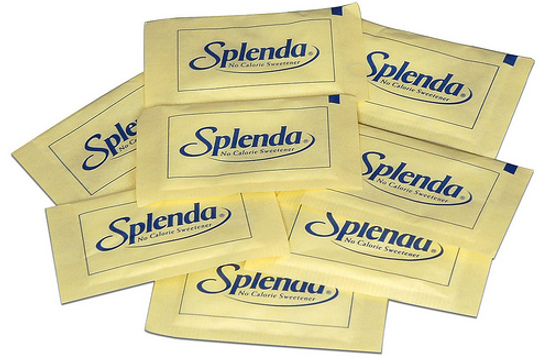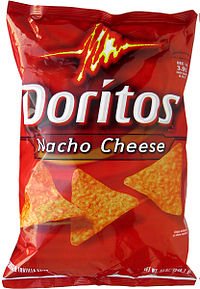TOP 6 Additives To Avoid At All Costs. Must Read
Eating whole organic foods as nature intended is absolute best way to keep and maintain a healthy brain. This reduces consumption of food additives, causing less stress on the brain. But no matter how hard we try, we all occasionally eat food that comes in a can or a box at least once in awhile.
The FDA allows 3,000+ additives to be used in the US food supply. As I have said many times before; Read the labels!
This can be confusing, so you must educate yourselves because Not all additives are unhealthy. You will find everyday items on the list like salt, vitamin C, and acetic acid (vinegar). You’ll also find long-winded names like Eleutherococcus senticosus which may sound suspicious, but is actually just ginseng.
But some of the nastiest additives in the world ARE NOT required to be on the label!
These are the TOP 6 that I recommend to avoid at all costs.
Aspartame
Of coure most of you already know how I feel about this deadly toxin so I won’t go into extreme detail. But here are a few facts.
Currently, there are 92 categories of complaints filed against aspartame with the FDA. And ironically, it is highly suspected of making people who use it fatter.
Original studies were falsified to hide the fact that animals fed aspartame developed seizures and brain tumors, but the FDA approved it anyway. As we well know, The FDA has a history of caring more about large profits than the consumers health.
Known as Nutrasweet, Equal, and AminoSweet, this is one of the easiest brain-damaging chemicals to avoid since it is clearly labeled.
Sucralose
While the affects of aspartame have been well-publicized, those of the horrific artificial sweetener sucralose are not as well known. Sucralose is marketed as Splenda whose ads say “made from sugar so it tastes like sugar”. What the ads don’t tell you is that sucralose is sugar bonded to chlorine, making it a toxic chlorocarbon.
Some common neurological side effects are headaches, migraines, dizziness, brain fog, anxiety, depression, kidney pain/failure, and tinnitus. Another side effect is weight gain, which rather defeats the purpose.
Sucralose prevents nutrient absorption and reduces the amount of good bacteria in your intestines by 50%. If you are using splenda; STOP using it immediately and start on Probiotic Blend to help rebuild the positive bacteria back up. Bad bacteria can have numerous negative effects on your brain including damage to the hippocampus, the part of the brain where memories are stored.
Stop drinking diet soda or eating foods with this or any other artificial sweetener. You're better off using Healthmasters Stevia .This is my favorite naturally sweet herb and it can be used to sweeten foods and drinks with zero calories, naturally.
Diacetyl
Americans love their popcorn, munching down 17.3 billion quarts of popped corn each year! But home-popped microwave popcorn usually contains butter flavoring with the additive diacetyl. It’s already established this chemical causes a serious condition called “microwave popcorn lung”.
Diacetyl is able to cross the blood-brain barrier, a defense which prevents harmful substances from entering the brain. It causes beta-amyloid clumping which is a significant indicator of Alzheimer’s.
You won’t see the word diacetyl on the label, but if you see “artificial butter flavor” or “natural flavors” on the label assume it contains diacetyl.
I’m as bummed about this as you are. But you can eat popcorn safely.
The best way to get healthy popcorn is to pop your own. Purchase NON-GMO Popcorn and drizzle melted organic butter on top. There is nothing wrong with using butter anyway.
Butter is a particularly good source of vitamin A and the fatty acid butyrate. Butyrate reduces chronic inflammation and counters neurodegenerative disorders like Alzheimer’s and Parkinson’s.
Monosodium Glutamate
Monosodium glutamate, usually referred to simply as MSG, is ubiquitous in processed foods. It breaks down in the body into glutamate, a known excitotoxin — a substance that literally stimulates brain cells to death.
A truly alarming thing about MSG is that it is in just about everything, yet it is not required to be on labels. This makes it very difficult to avoid.
It is required to be listed on a label only if it’s 100% pure MSG. Spices, flavorings, and natural flavorings can all contain up to 99% MSG with no mention on the label!
Generally the saltier the food, the more MSG it will have, with worst offenders including canned soups, snacks, and ramen noodles.
And don’t think that shopping at a health food store will protect you. Health food items are not immune, especially refined soy products like soy burgers.
Top MSG Sources
Here are some ingredients to watch out for that always contain MSG:
· Hydrolyzed vegetable protein
· Hydrolyzed plant protein
· Hydrolyzed protein
· Plant protein extract
· Calcium caseinate
· Sodium caseinate
· Yeast extract
· Textured protein
· Autolyzed yeast
These ingredients can contain MSG:
· Malt extract
· Malt flavoring
· Bouillon
· Broth
· Stock
· Flavoring
· Natural flavoring
· Beef flavoring
· Chicken flavoring
· Seasoning
· Spices
Another huge source of MSG is fast food restaurants. With one of the worst offenders being KFC at the top of the list. Even their salads and green beans contain MSG!
Aluminum
This is another one that I have gone over repeatedly in the past, yet almost everyone still uses alluminum based deodorant.

Aluminum is an additive in baking powder and anti-caking agents, but it is used as much more than just a food ingredient. It is the most abundant metal in the the earth’s crust, however there is no where in the world that you can find free form like the kind you find in these items. It’s in drinking water, antacids, deodorant, cans, foil, and is very commonly used in cookware.
Aluminum is suspected of contributing to Alzheimer’s. In the 1970′s, autopsies revealed that people that had Alzheimer’s had a larger than normal concentration of aluminum in the brain. This understandably began a scare that aluminum was the cause of Alzheimer’s.
Many people consequently stopped using aluminum cookware. This soft metal leeches into food especially when cooking acidic foods like tomato, lemon, or vinegar.
Stainless steel is the better cookware choice. It is more durable, scratch-resistant, and less reactive than aluminum. It’s easier to keep looking good for the long haul, too.
I also recommend using aluminum-free deodorants.
Sodium Fluoride
As I have documented in previous newsletters, fluoride was allegedly used by the Nazis during World War II to sterilize concentration camp prisoners and make them docile. Even today fluoride is considered by many as a key 'dumbing down' ingredient of Prozac and Sarin nerve gas – and in some cases, is used in rat poison!

For clean Fluoride Free toothpaste with use Ultrashine Kiss my Face
For pure water, use our Water Distiller for ultra pure water.
Since we already know aluminum is a known neurotoxin, it only makes sense to minimize your exposure.
Avoiding these six chemicals is not that difficult. There are healthy alternatives, so you can reduce exposure with little effort. Taking action will help you reduce exposure to brain toxins.
Call us with any questions
1-800-726-1834








